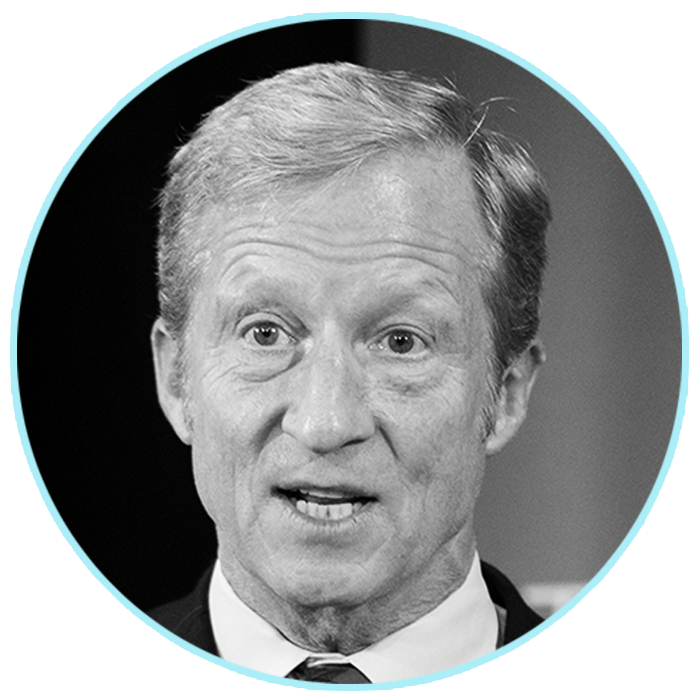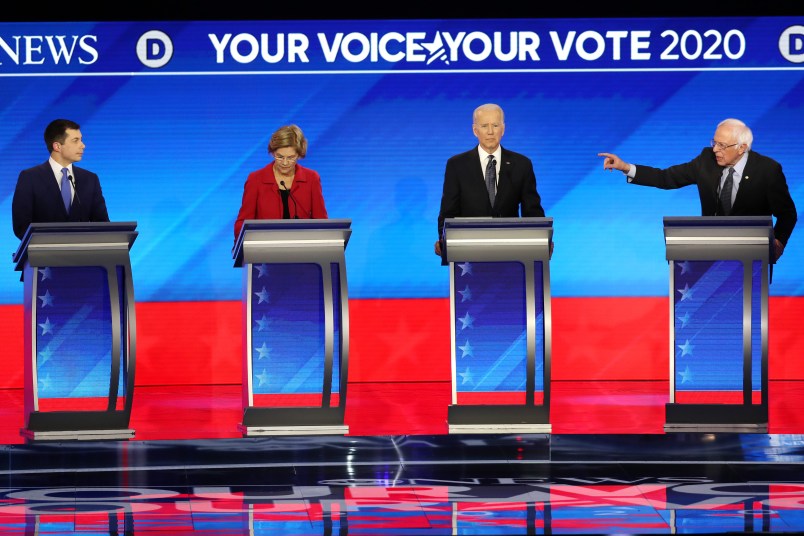After the Iowa caucus disaster, each candidate came to the New Hampshire debate with something to prove.
Whether it be to salvage a win or bury the loss, seven presidential hopefuls took the stage to sell themselves to primary voters.
Here were their strategies:
 |
Former South Bend Mayor Pete ButtigiegButtigieg just edged out Sanders in the Iowa caucus, making him Monday’s big winner. That victory, naturally, put a huge target on his back. Buttigieg delivered clearly prepared answers for many of those attacks, especially criticism about his youth and inexperience, framing himself as someone who’s prepared for the stresses of the presidency of the future. |
 |
Sen. Bernie Sanders (I-VT)For Sanders particularly, this was a night he had to present himself as a unifier. After former Vice President Joe Biden’s disappointing finish in the caucus, Sanders was looking to mix his competitor’s stumble with his own good positioning in New Hampshire and Nevada to fashion himself as the new frontrunner. That required a departure from his usual tactic of characterizing himself as the outsider, anti-establishment candidate. In one especially notable moment of reaching to the center, he promised compromise with Republicans on common ground, a page ripped straight from the Biden book. |
 |
Sen. Elizabeth Warren (D-MA)Warren put up a strong, competent performance as usual — but struggled for airtime. Her third place finish in Iowa has been largely overlooked in coverage of the race, and she was accordingly treated like a non-threat on the debate stage. No questions looked to spark fights she’d be a part of, and she largely only got in on the questions when asked things directly. |
 |
Former Vice President Joe BidenBiden was notably fired up throughout the debate. He got angry when Buttigieg questioned his accomplishments, at President Donald Trump’s foreign policy, at Sanders’ explanation for how to pay for health care. He was clearly coached to turn up the passion after an extremely limp Iowa showing, and is trying to energize his followers. |
 |
Sen. Amy Klobuchar (D-MN)Klobuchar is a reliably good debater, but it hasn’t much helped her standing in the polls. So, she was faced once again with the task of showing voters why they should support her. Tonight, she hammered her legislative effectiveness and electoral successes, framing herself as steady, reliable and effective. She mixed in a hearty dose of emotional anecdotes as well, painting herself as the presidential everywoman. |
 |
Tech Entrepreneur Andrew YangYang did what he usually does: stuck to broad strokes and conveyed his personal likability. He was absent from the last debate, but rustled up the support to get back into this one. |
 |
Billionaire Tom SteyerSteyer constantly pivoted back to the need to take on Trump rather than Democratic infighting. A generous read of this is that Steyer doesn’t want Democrats weakening each other before the general election. A less generous read is that criticizing Trump is always a reliable applause line. |



